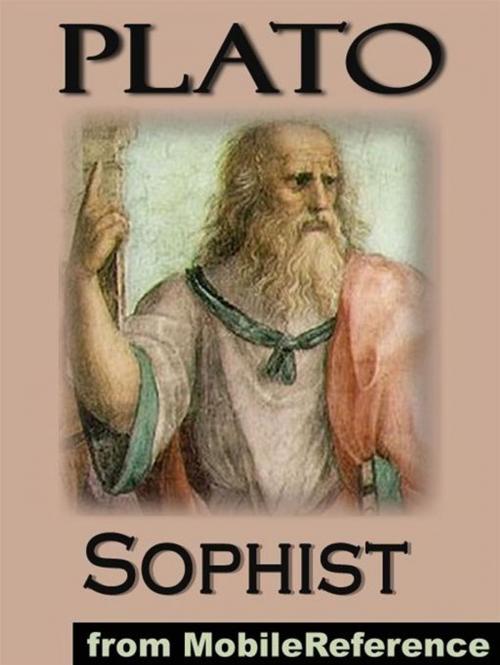Sophist (Mobi Classics)
Nonfiction, History, Ancient History, Greece, Religion & Spirituality, Philosophy, Political| Author: | Plato, Benjamin Jowett (Translator) | ISBN: | 9781605018867 |
| Publisher: | MobileReference | Publication: | January 1, 2010 |
| Imprint: | MobileReference | Language: | English |
| Author: | Plato, Benjamin Jowett (Translator) |
| ISBN: | 9781605018867 |
| Publisher: | MobileReference |
| Publication: | January 1, 2010 |
| Imprint: | MobileReference |
| Language: | English |
The Sophist is one of the late Dialogues of Plato, which was written much later than the Parmenides and the Theaetetus, probably in 360 BC. After he criticized his own Theory of Forms in the Parmenides, Plato proceeds in the Sophist with a new conception of the Forms, more mundane and down-to-earth, and makes more clear the epistemological and metaphysical puzzles of the Parmenides; thus, he refers to that dialogue between Parmenides and young Socrates, which was written probably much earlier than the Sophist. Furthermore, he shows his expertise in Dialectic, as he applies it in this Dialogue in order to define the Sophist. Moreover, he solves the puzzle of the false and the right opinion, as well as of the justified true belief that had been inquired in the Theaetetus. Excerpted from Wikipedia, the free encyclopedia.
The Sophist is one of the late Dialogues of Plato, which was written much later than the Parmenides and the Theaetetus, probably in 360 BC. After he criticized his own Theory of Forms in the Parmenides, Plato proceeds in the Sophist with a new conception of the Forms, more mundane and down-to-earth, and makes more clear the epistemological and metaphysical puzzles of the Parmenides; thus, he refers to that dialogue between Parmenides and young Socrates, which was written probably much earlier than the Sophist. Furthermore, he shows his expertise in Dialectic, as he applies it in this Dialogue in order to define the Sophist. Moreover, he solves the puzzle of the false and the right opinion, as well as of the justified true belief that had been inquired in the Theaetetus. Excerpted from Wikipedia, the free encyclopedia.















